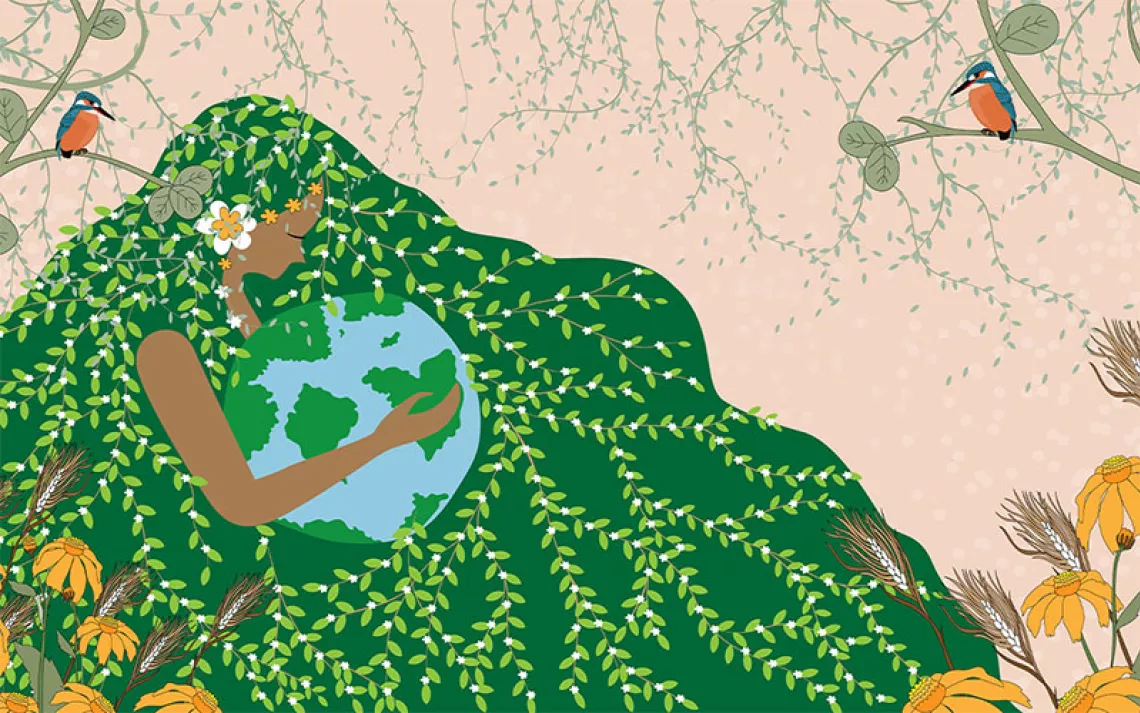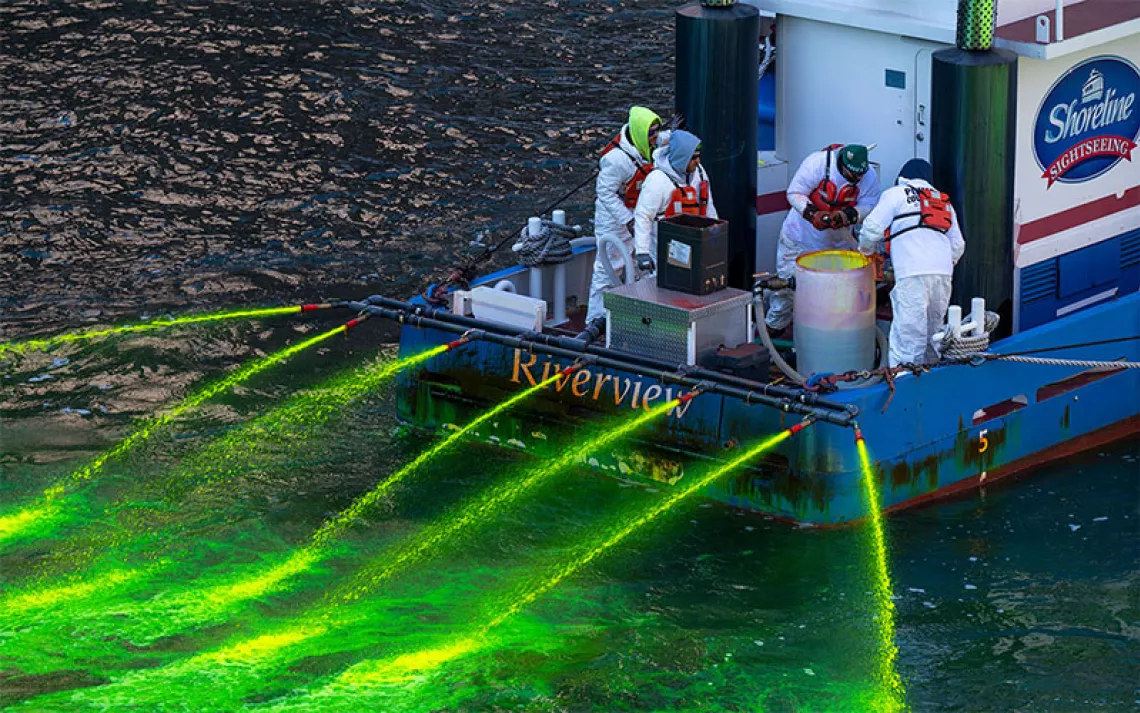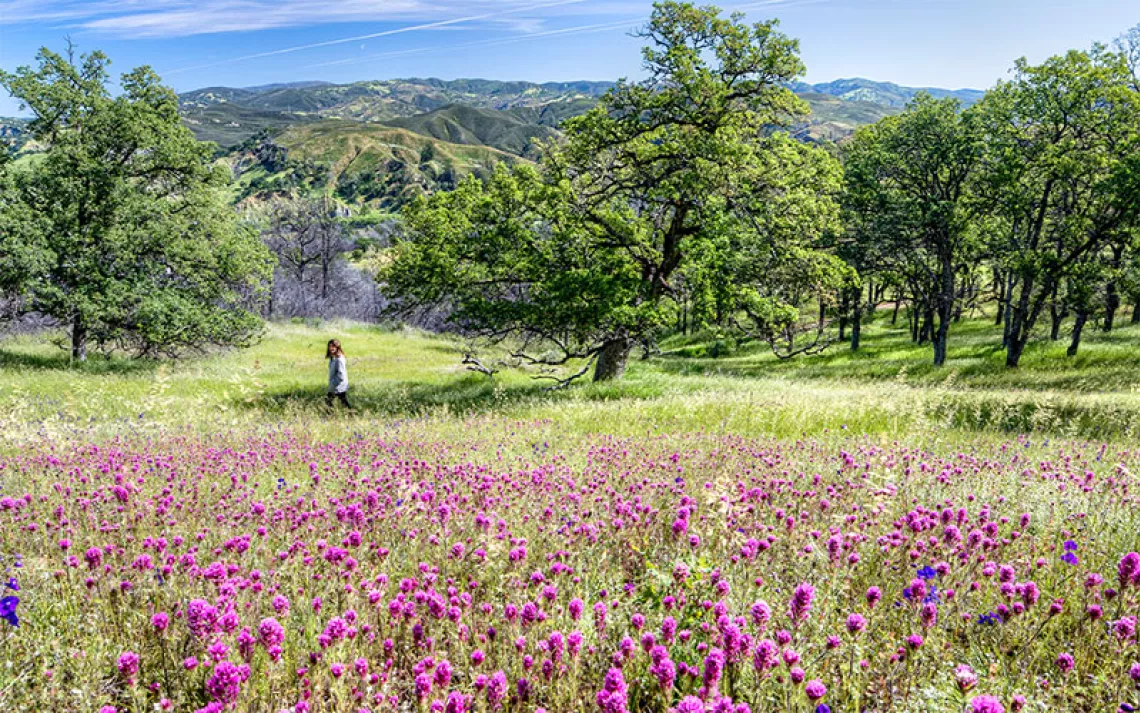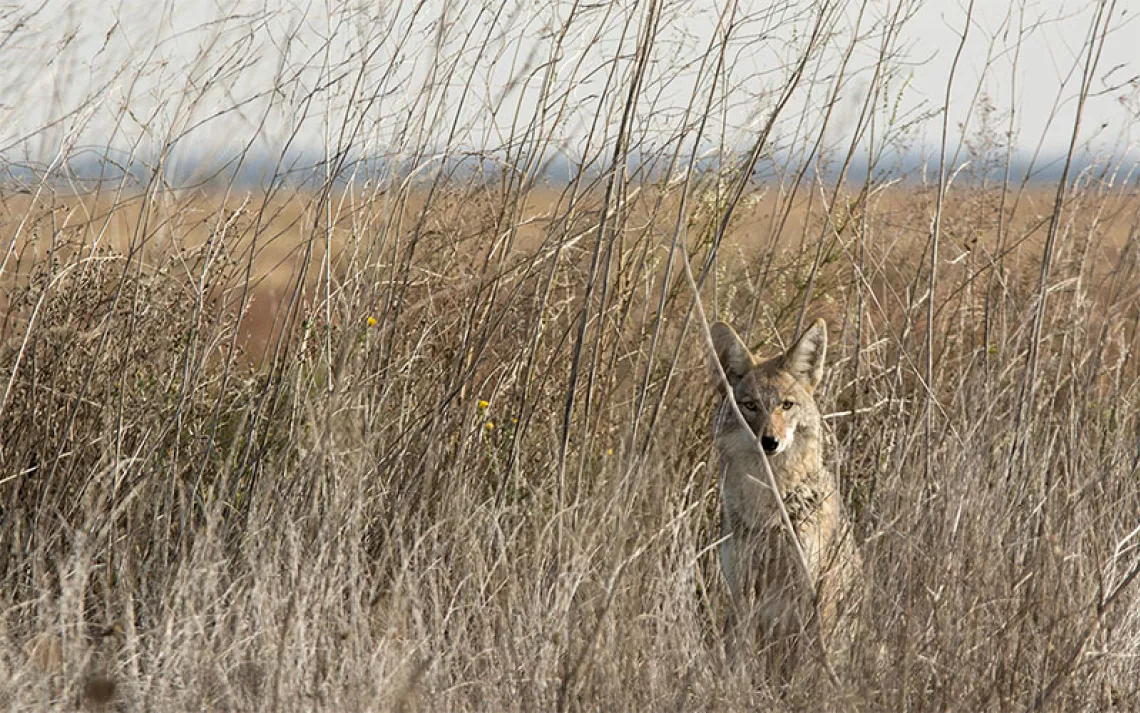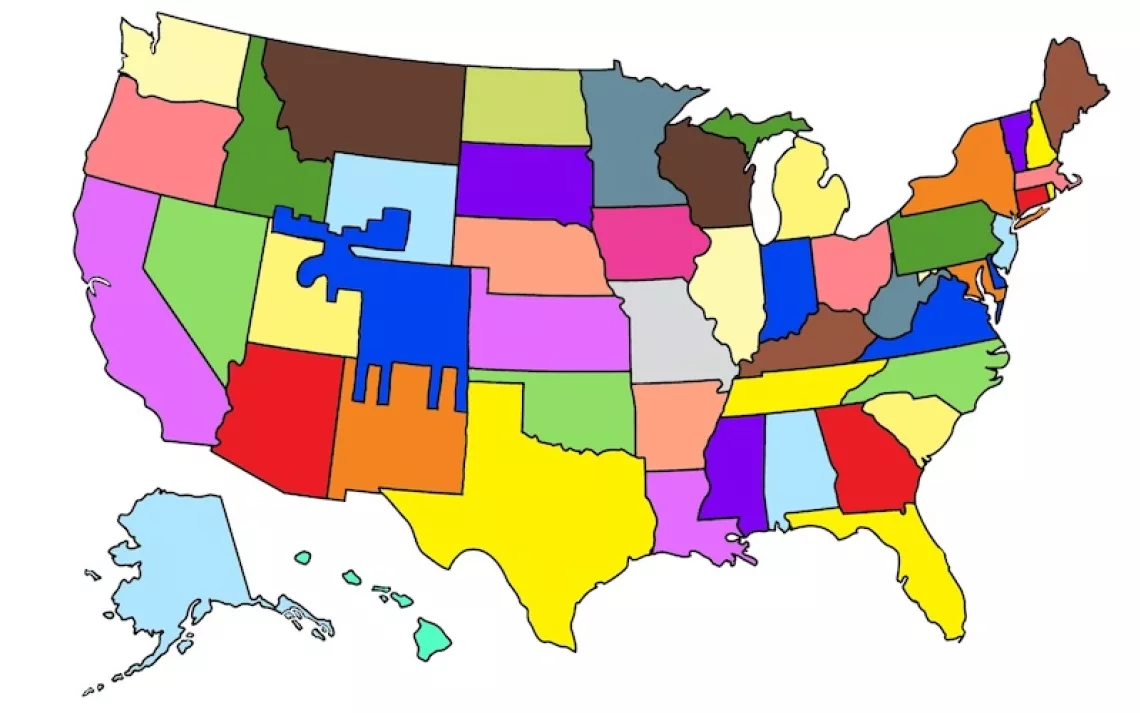Love in Antarctica
Heartwarming valentine stories from the icy continent
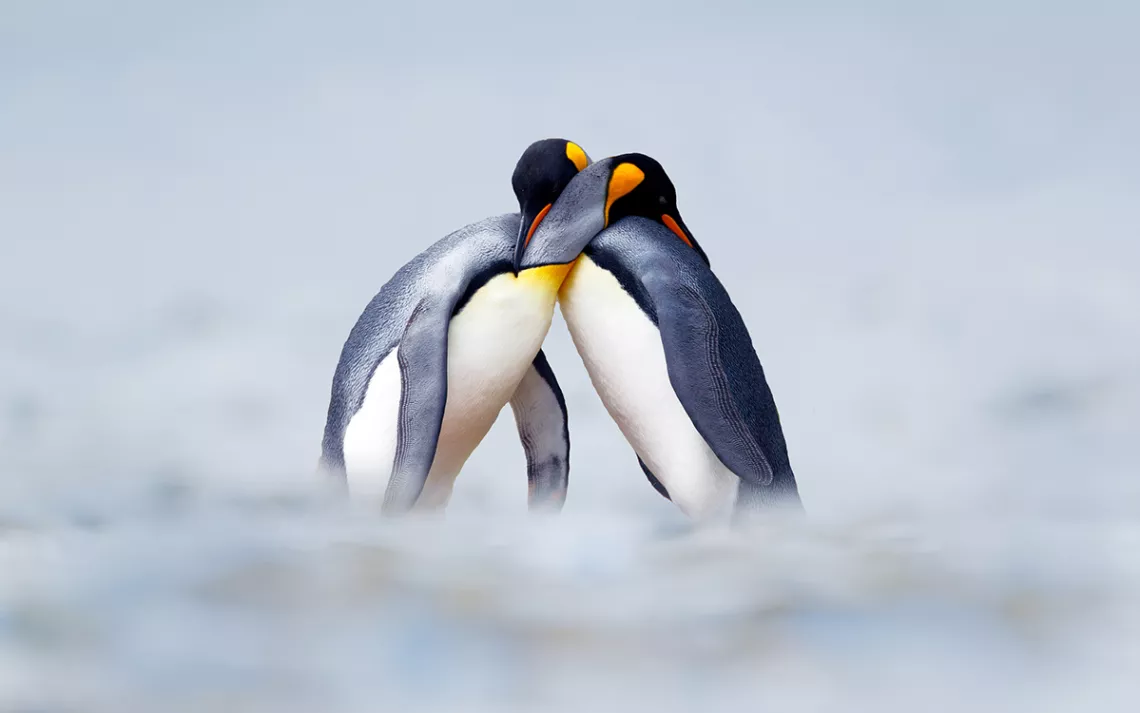
Photo by Ondrej Prosicky/iStock
Nina Marek got cold feet on her wedding day. So did her husband-to-be, AJ Smith. They also got cold hands. Their faces were frigid. They had been temporarily lost while kayaking in custard-thick fog off the icy island of Astrolabe in Antarctica, and by the time they got back to the Polar Pioneer, they felt frozen from head to toe.
But doubts? If they doubted anything, it was only their chances of making the ceremony on time. “We were late to our own wedding, getting lost kayaking in a mighty fog for what felt like eternity,” recalls Marek, still happily married five years later. “I was scared, the sea was choppy, the groom was throwing up over the kayak.”
Some couples are late to the altar because the limo bursts a tire or because the best man misplaces the rings; everyone on board the Pioneer agreed that Nina and AJ’s predicament was more interesting. And besides, the kayaking guide was in radio contact with the captain. They’d arrive eventually. It wasn’t the end of the world.
Except, of course, it was—the ship was navigating to the west of the Antarctic Peninsula, having pushed as far as it could into the infamous Weddell Sea before being rebuffed by sea ice. It was passing Astrolabe en route to less treacherous waters during a 10-day cruise around a minuscule section of the icy continent.
When it finally came time to exchange rings, the bride wore a knitted dress the color of warm sand, as though by avoiding traditional white she was better contrasted against the frozen landscape outside. All things considered, this was not the most unconventional aspect of the ceremony—at over 63 degrees south that day in February 2017, it was almost certainly the remotest wedding on the planet. “By that point, the 50-something strangers at our wedding weren’t strangers at all,” remembers Marek. “We were all connected by this extraordinary experience. The wedding day wasn’t a disaster—it was an adventure.”
The world’s wildest continent may seem like a peculiar place for romance, but those who live and work at those latitudes rarely see conflict between warm hearts and the cold environment. Despite, or because of, its singular status in the world, the far south has a lot of love. It’s there on the ships and it’s there on the bases. Guides fall in love with other guides, passengers fall for other passengers—and everyone falls in love with Antarctica.
In 2010, Alastair Newton was aboard the Polar Star, a converted icebreaker, working as an expedition leader touring passengers around the Antarctic Peninsula. Because of the ship’s capabilities, it made a point of making weekly visits to the often-ice-encased Port Lockroy, a British scientific outpost and post office on the peninsula’s west coast. Nikki Rickett was working there as base leader and, despite having never met Alastair before, ran up and hugged him “We were all bundled up in our gear, and she thought I was someone else,” laughs Newton when telling the story about how they met. “It was a bit embarrassing, but we invited everyone from the base over to the ship, and then some of us went over to Port Lockroy for coffee. We stayed in touch.”
Thing spiraled from there. They were engaged a couple of years later, then had a polar-themed wedding in 2015. They now live together in Scotland with their twins and as soon as they’re old enough, the kids will hear their unlikely origin story. Their parents may have fallen in love anywhere, but the Seventh Continent will forever be a part of their lives. “It’s hard to explain what causes it, but Antarctica has a huge emotional impact that lasts,” Newton says. “It’s so rare in the world today to really experience true wilderness. I think you get a very real sense when you’re down south just how remote it is and how small you are as an individual. I think that helps form very strong bonds.”
A veteran of at least 20 austral summer seasons in Antarctica, Stephanie Martin isn’t sure just how many times she’s traveled south, but her 2002 trip to the subantarctic island of South Georgia is forever frozen in her memory. “Our ship was visiting the British Antarctic Survey research station at King Edward Point, and we invited everyone from the base on board for a barbecue,” says Martin over Zoom with now-husband Simon Morely sitting next to her. “Simon asked me where to find the food, and we ended up chatting for four hours. We both got teased by our colleagues later because we talked so much.”
Her ship left soon afterward, but the smitten couple decided to try and stay in touch. In those relatively nascent days of Antarctic tourism, it was not so simple—internet connectivity was not reliably available as it is on many ships and bases now. “We exchanged emails for 10 months and had a few very expensive phone calls,” Martin says. “The radio officer at my next position working up in the Arctic would get these messages from Simon, download them three times a day, and print them out for me. I’d get back from landings and they’d be sticking out from under my door.”
“We had just four email schedules a day as there was no reliable connection,” Morely adds. “We had to think a lot more about communication when it was like that, so I think it gave us a better chance to get to know each other.”
However arduous it was, the couple made it work—they have been married for 17 years and had a second wedding ceremony in the old Norwegian church in the former whaling station at Grytviken back in South Georgia. Morely isn’t surprised that people fall in love in Antarctica, but he doesn’t attribute it to some magical energy in the near-mythic landscape. “It’s very similar sorts of people who want to go there in the first place,” he explains, sounding every bit the scientist he is. “Whether they’re in the bases or on the ships, the people are a very similar breed, so it doesn’t surprise me that they have a connection.”
Husband-and-wife Dan and Rachael Brown also fall into this category. They didn’t first meet in Antarctica, but when not running naturalist tours around Scotland, they work together as guides in polar regions. For paying passengers, Antarctica can be an ethereal, soul-shuddering place, but for the staff facilitating these profundities, ship life is often very different. Long hours, rough seas, challenging tourists, cramped living conditions: The couple endure it all to sail and work together. What is it that makes those journeys not just tolerable but enjoyable? Do they love it too? Their replies come braided in superlatives.
“The first time I was going down, I knew I was going to a special place,” says Rachael. “I knew it would be spectacular, but it’s more than that. It’s more than you can experience anywhere else.”
“It’s overwhelming,” Dan adds. “But it’s also incredibly difficult to put into words why it’s so special.”
“You feel in awe of it, but also you know that if you weren’t prepared, it could kill you,” says Rachael, sounding like she could be talking about love or Antarctica, but probably both. “It can be absolutely brutal. It’s humbling. Amazing.”
 The Magazine of The Sierra Club
The Magazine of The Sierra Club

